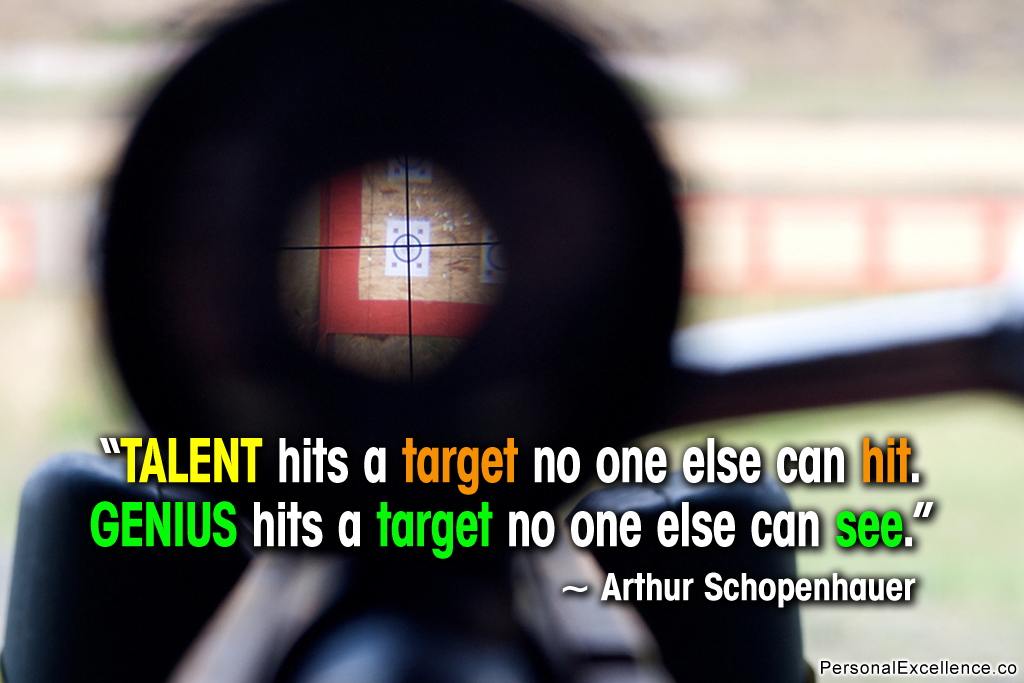This post is dedicated to those of you who dislike criticism. Let’s all embrace criticism together! :)

(Image: *vlad*)
Last week, I was having lunch with a friend P. We started to talk about blogging.
P told me that she has been thinking of starting a blog. She was raised in different parts of the world and is now a permanent resident in Singapore. Despite recently having a baby, she travels every month with her husband and baby as part of exploring the world. She wants to start a blog to dispel myths about how it’s hard to travel (or live a normal life for that matter) after having a child.
“That’s a great idea!” I said.
“Thanks! But there’s something that I feel hesitant about,” she said.
“What’s that?” I asked.
She said that she’s concerned about receiving criticism. She’s a very private person, and starting a blog would require her to share pretty personal things about her life. This is a premature concern since she might not even receive any criticism, but she wouldn’t know how to handle it if she did. Ideally, she wouldn’t want to be caught in that situation. She is just unsure of how the public would respond to her writing.
So I told her that her feelings are unwarranted as criticism is a good thing. Then, I shared why I think that way.
She immediately broke into a huge smile, nodded, and said that it was a great way to look at criticism. She left our lunch meeting saying that she’s going to start viewing criticisms that way from now on.
Embracing Criticism (and Some of the Worst Comments I’ve Received)
What I shared with her are the things I’ve learned about criticism since starting my business.
Not long ago, I posted a comment on Facebook expressing gratitude to my readers for their constant support. I said that they make the occasional “bad stuff” worth it. I received a series of mainly positive responses almost immediately, which warmed my heart.
Among them was one from an ex-colleague, a senior manager from the company I used to work at. She said that whatever negative feedback I receive today should be a breeze since I used to work at a P&G, a multi-national corporation known for its high pressure work environment.
While I understood what she was saying, as my past role in P&G was a high stakes job which came with harsh evaluations and critiques, the feedback was always about the work itself (unless you have a bad manager, in which case it’s still possible to distance yourself and objectify the feedback).
But blogging and the online space? Oh lord. It’s a whole different ball game altogether. The kind of comments you get online has no boundaries. They can basically be anything, from your looks to personal life to family. It’s no longer about the work: it’s about everything, and it can get very ugly as the internet is now flooded with trolls.
Just two weeks ago, I wrote about my enrollment in a dating agency, which was sponsored by the agency itself. Not long after, someone posted two comments insulting me, saying that the article made her “sick to her stomach,” that I had “no integrity,” that I had “prostituted” myself, that I should send my article to “pornhub” (????), and “it is no wonder you are still single” (among some other colorful words).
A while back, I had a photoshoot with SimplyHer (a local magazine) as part of a coaching feature that I did for them. I shared the photos on my blog. A guy, a self-help blogger no less, wrote a sexist email after seeing the photos, asking me to “please lose some weight” because people look up to me for inspiration and I was apparently not inspirational enough because I looked (and I quote him) “too prosperous” in the shoot.
A month ago, someone spammed my articles with various pointless comments. In one of her comments, she flamed me and my ethnicity, saying that I was a joke and I was nothing but a “stupid Azian [sic] girl trying to take over the world” (along with a devil emoji).
And the list goes on. I’ve shared more examples of negative criticisms I’ve received before, but trust me when I say that these are just the tip of the iceberg.
…Yet, I think criticism is good, really good. I didn’t use to think so until I started my blog Personal Excellence. And I’ll explain to you why.
9 Reasons Why Criticism Is Good
Barring the personal nature of the criticisms above, which I’ll get to in a bit, criticism is good for the nine reasons below.
- For someone to criticize you, it means that he/she cared (enough to write that criticism, anyway). The person could have used that time to do something else, but no, he/she bothered to send you that message, showing that he/she cared. This has got to count for something.
- You are reaching new people. Every time I receive criticism, I celebrate because that means that I have just reached someone new — someone who doesn’t necessarily agree with what I say/do. I think what’s most worrying is if I don’t get any criticism at all. That would mean that I’m inside my comfort zone and I’m just connecting with the same people every day. You want to spread your life’s message to as many people as you can. Receiving criticism means that you are now reaching people whom you’ve never reached before. That means that you are touching more lives than before. That’s a really great thing.
- People wouldn’t criticize you if they didn’t think you were worth criticizing. To be honest, there are tons of things worth critiquing out there. But not everyone takes the time to criticize things that they don’t agree with. Why? That’s because they don’t feel that those things are worth their criticisms at all. If someone is criticizing you, that probably means that there’s something about you that is worth them taking the time to criticize. If you look at the most prominent figures in this world today, from Oprah Winfrey to Steve Jobs to Lady Gaga, all of them have large groups of detractors. Why? It’s because each of them stands for a great message — a message that shakes others and stirs their souls. As Winston Churchill once put it, “You have enemies? Good. That means you’ve stood up for something, sometime in your life.”
- Criticism lets you see things in a different light. Criticism arises as a result of a conflict in thoughts. You did or said something and someone has a different opinion and hence the criticism. Hence, whenever you receive criticism, you are hearing a different viewpoint — one which you may have never considered before. This criticism helps you see things from a different angle, hence raising your awareness.
- Criticism is a form of honesty as it lets you know what others truly think. I prefer to be with someone who openly shares what he/she thinks rather than someone who thinks those very thoughts BUT keeps them to him/herself. With the first person, at least what I see is what I get. With the latter, the relationship becomes a guessing game. What I do after hearing the critique is a separate thing altogether (I can choose to listen to that critique or discard it), but at least I’m now aware of what the person thinks and where he/she stands.
- Criticism helps you improve. Criticism lets you know your blind spots so that you can work on them. The more blind spots you uncover about yourself, the faster you grow. Over the years, I have learned many things about myself based on others’ criticisms about me and my work. Some have helped me learn things that I never knew about myself, and this has been instrumental to my growth.
- Criticism helps you learn about your defense mechanisms. In Be a Better Me in 30 Days task for day 15 on “Reflect on a Criticism,” I mentioned that there are two things we can learn from criticisms: Firstly, the thing that is being critiqued. Secondly, our reaction to that criticism. Even when I get a piece of criticism which has no validity, I still learn a ton about myself based on the emotions that surface when receiving the criticism and how I react. I’ve learned that my reactions are usually a reflection of unprocessed inner issues. Working through these reactions has helped me become a calmer and more conscious person.
- Criticism helps you learn more about others. Every criticism tells you something about yourself and the other person. When you break down the comment, you can understand the critic’s point of view, beliefs, and values. This is helpful in furthering your relationship with him/her. For example, if your mom criticizes you for being rude to her, maybe it tells you that she is hurt by your actions. She is looking for love and affirmation in the relationship but your words and actions (whether they are really rude or not) are denying her that. Hence, it indicates that you should show love to your mom in a way that she understands rather than relying on implicit actions.
- Criticism can jolt you into action. Ever had a time where a criticism kicked you into action? I’ve had that. Sometimes, criticism provides that wake-up call that you have been missing. Perhaps you have been doing something wrong but the people around you are just too nice to let you know, or they are oblivious to the issue just like you. A well-timed criticism, delivered in an appropriate manner, can provide a much-needed insight which then ignites you into action.
When Criticism Isn’t Good
At the same time, it’s important to note that there are two situations when criticism can be detrimental.
#1: When criticism is the only thing you get every day
The first situation would be when you constantly get criticisms without a breather. Besides it being a serious energy suck, constant criticism can divert you from the things that really matter. Because rather than work on your goals, you’re too busy reacting to others or resolving conflicts between you and other people.
Some examples would be parents who criticize their kids 24/7; teachers who keep criticizing their students rather than praise their talents; and someone whose work involves dealing with a public audience (such as teachers, writers, bloggers, and public figures).
If you’re getting so much criticism to the point that it’s hindering rather than enabling you, some suggestions I have for you are
- Learn not to let criticism faze you. Read: How to Deal With Critical People
- Don’t spend your time on the criticism. Use it for the things that really matter. Read: Put First Things First
- If the criticism is mainly coming from a person, assert yourself to him/her. Tell him/her that you get his/her point, but this isn’t what you want to be dealing with at the moment. Read: How To Be Assertive, Not Aggressive
- Create boundaries for how criticism can reach you. For example, I set specific channels where readers can openly share feedback (such as my Facebook page and my contact form). I used to have commenting sections on my blog but they are now closed as it became difficult for me to manage the countless random comments posted every day — many of which became very low-quality critiques over time. This has helped me stay focused on what I need to do.
#2: When the criticism isn’t constructive or gets personal
The second situation is when the criticism isn’t constructive or gets personal or offensive. The blog comments that I shared earlier in the article are examples of that.
When that happens, it’s a violation of your rights. Put these people in their place by asserting your rights. Block or remove them if you’re running an online community. Cut out chronic critics from your life if you have to.
Read: How To Handle Bullying: An Important Guide
Start Embracing Criticism
Here are other resources I’ve created on handling criticism:
- How To Deal With Critical People: 8 Tips | Manifesto
- 8 Tips To Tackle Naysayers | Manifesto
- Empty Vessels Make the Most Noise
- Online Negativity: How To Create a Better Internet for Everyone
- 5 Tips To Deal With Negative Criticism [Video]
- Be a Better Me in 30 Days, Day 15: Reflect on a Criticism
At the same time, it’s important to learn to provide constructive criticism to others. Here’s a quote by A.C. Benson that I absolutely love:
“People seldom refuse help, if one offers it in the right way.”
How true is that? :) If someone isn’t taking to your well-intended feedback kindly, perhaps it reflects that you aren’t delivering your feedback in the right manner. Here’s an article that will help: How To Give Constructive Criticism: 6 Helpful Tips









 Thanks for reading. If you like my free articles, join my private email list and get my latest updates and articles sent right to your inbox.
Thanks for reading. If you like my free articles, join my private email list and get my latest updates and articles sent right to your inbox.